PASSPORT’s Favorite Books For Spring 2025 spotlights some dynamic reads for your next getaway, perfect for art and literary aficionados.
Passport explores the depths of language, identity, and cultural preservation In Tongues by Thomas Grattan, a mesmerizing novel that weaves together themes of communication and belonging, while Take My Name But Say It Slow by Thomas Dai delves into the complexities of names and personal history with quiet intensity. Meanwhile, Custodians of Wonder by Eliot Stein takes readers on a global journey to witness the traditions that persist against the tide of modernity.
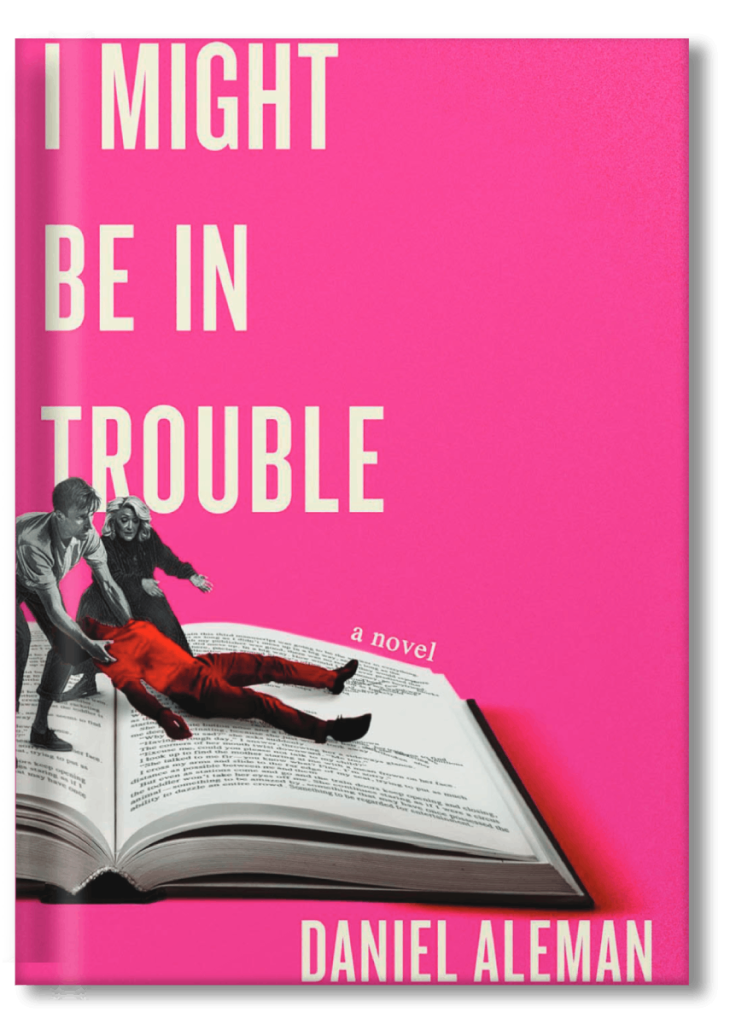
I Might Be In Trouble by Daniel Aleman
Just a few years ago, David was the gay golden boy of the literary scene, but after a bestselling debut, his second novel flopped. A third manuscript was outright rejected by his publisher. His boyfriend has dumped him. And he’s almost drained his savings. Then one morning, after a whirlwind night on the town, David wakes up next to his daddy-esque internet hook-up who is stiff in a very wrong way. In I Might be in Trouble, a screwball comedic mystery by Daniel Aleman ($27.99. Grand Central Publishing. danielaleman.com), the corpse proves the catalyst for a comeback. With coaching and cheerleading by Stacey, the sharp-elbowed New Yawky literary agent whose professional success is intertwined with his own, David disposes of the body; is pursued by his dead date’s powerful husband, who suspects him of murder; and reworks the whole escapade into a surefire first-person novel. This novel, in which the plot twists into a clever homobius strip is sprightly and easy-to-follow. The book also finds Aleman incorporating melancholy philosophical musings on contemporary gay life, loneliness, and family estrangement right alongside the flatulent cadaver jokes. It doesn’t all meld perfectly, and its meta-ness gets a bit messy toward the end, but this is an admirably ambitious, always entertaining book by a young author worth following.
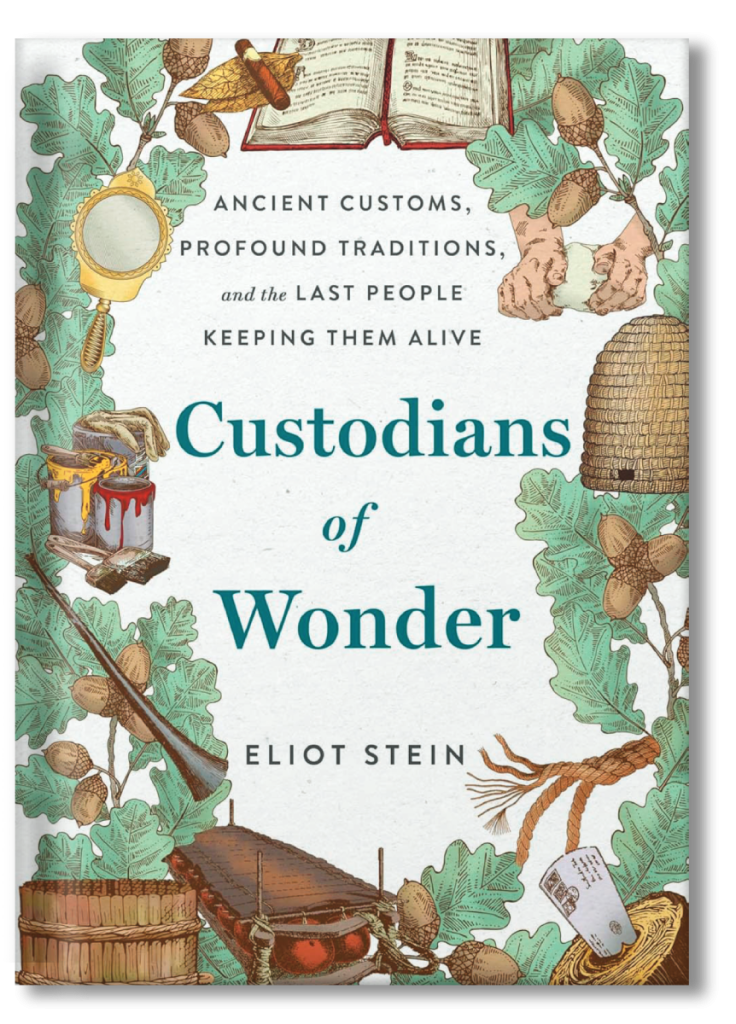
Custodians of Wonder by Elliot Stein
While not written as a guidebook, Eliot Stein’s Custodians of Wonder: Ancient Customs, Profound Traditions, and the Last People Keeping Them Alive ($29. St. Martins Press. eliotstein.me) may well prove a source of inspiration for curious travelers. Over ten stand alone chapters, which can be enjoyed in any order, BBC journalist Stein introduces readers to a group of men and women whose lives are dedicated to increasingly rare crafts, trades, and rituals. In Cuba, we meet Laura Reyes, a lector (reader) in the country’s largest cigar factory. Each workday morning, she reads newspaper articles aloud to hundreds of workers as they hand roll their wares; in the afternoon she turns to novels that have been selected by the laborers. In remote Sardinia, 69-year-old Paola Abraini, two of her nieces, and her sister-in-law all make sufilindeu (threads of God), the world’s rarest pasta “a latticework of razor-thin threads so delicate and precise, so intricately interwoven that it resembles stitched lace.” In Peru, Victoriano Arizapana continues a centuries old Inca tradition of weaving local grasses into footbridges to span precarious mountain passes. Mirror-making in India, the preservation of oral history in Mali, and artisanal soy sauce brewing in Japan are among the other topics Stein explores, encouraging readers to marvel at the world’s variety and steer clear of “global homogenization.”
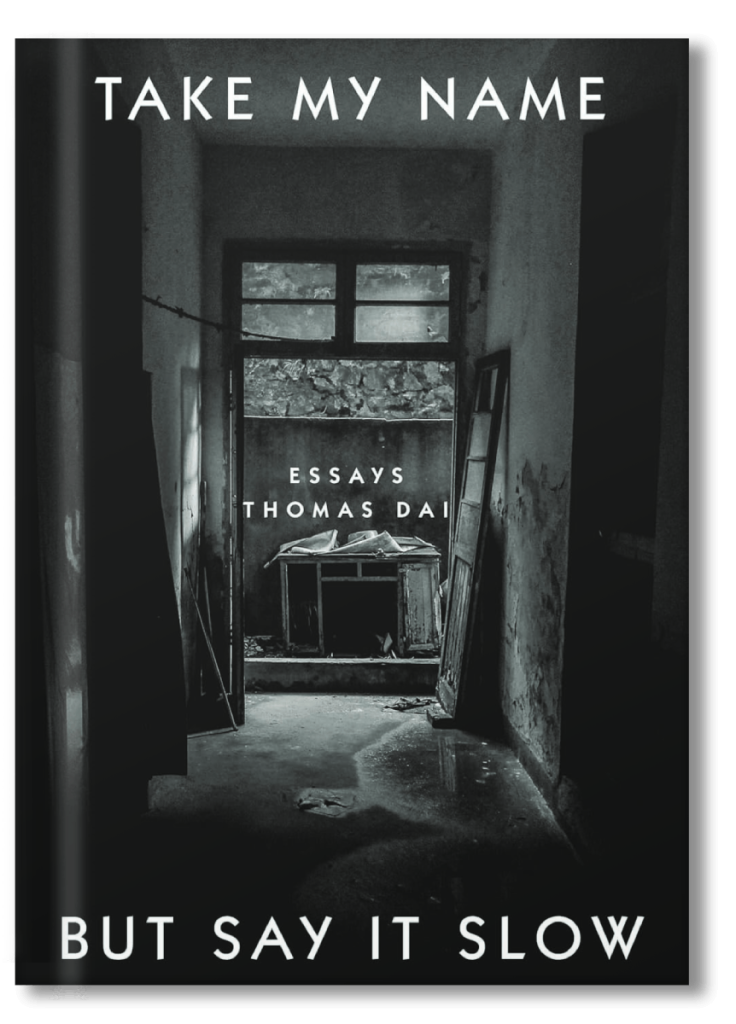
Take My Name But Say It Slow by Thomas Dai
Queer Chinese-American writer Thomas Dai explores ambiguities of place and personal identity in his poetic essay collection Take My Name But Say It Slow (Norton. $28.99. thomasndai.com), which will have special resonance for gay travelers. “I have never wanted marriage or children, great fame or fabulous wealth,” he writes,“ but a life rich in geography, in places explored or vistas collected.” Reflecting on his Tennessee childhood passion for globes, maps, and National Geographic, Dai notes “All the hours I spent staring at maps certain ly took my mind somewhere, but in other ways, loving geography made me stay put. It enabled my desire to recede and turned me into a willing and delighted recluse.” In one piece, “Queer Cartographies,” he introduces the website queeringthemap.com (aka QTM, and previously unfamiliar to this writer), a fascinating collective project in which users post notes about their queer experiences (sexual, romantic, and otherwise) on a world map. “One of the things I liked best about QTM,” Dai writes “is how thoroughly it pluralizes the idea of queer space, proving that queer moments happen anywhere and everywhere…not just in coastal metropolises and the bubbles built by the liberal arts.”
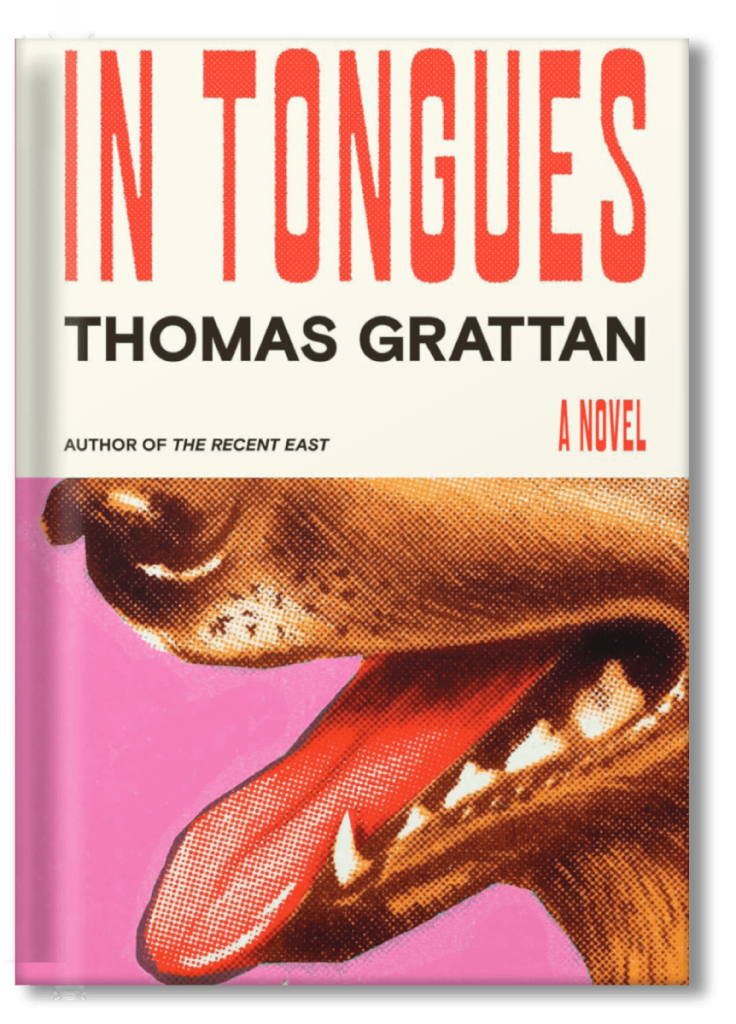
In Tongues by Thomas Grattan
Thomas Grattan‘s In Tongues ($18. MCD. thomasgrattan.com) is a distant descendant of Dickens, with much more dick. Newly released in paperback, it’s the picaresque and ultimately poignant coming-of-age tale of a 24-year-old Minnesota boy who moves to New York in 2001. College dropout Gordon takes the bus to the big city where, after a quick stint as a grocery store stock boy, he becomes a dog walker, with clients including a wealthy gay couple, Philip and Nicola; and gallery owners who swiftly offer him a job as their personal assistant. Soon, ensorcelled by the lifestyles of well-heeled Manhattanites, Gordon feels more like an outsider, and more desperate to be an insider, than ever before. The equilibrium of his identity goes wobbly in the rarified air of the rich: If he’s their employee, can he also be their friend? And can they be worthy father figures? Grattan deftly etches the complex dynamics that occur among gay men of differing classes and generations, a perpetual teetering between the familial and the transactional. Grattan’s prose maintains a vividness of tone and crisp ness of language even at its characters’ lowest moments; a matter-of-fact “this too shall pass” realism keeps everything moving at a lively clip. Toward the book’s end, Gordon is reunited with his actual father, from whom he’s been estranged. Dad’s a holy roller who speaks in tongues, a language that makes no more sense to his son than the whispery doublespeak of old money. To grow up is to learn to speak for oneself.
AIRPLANE READ OF THE MONTH
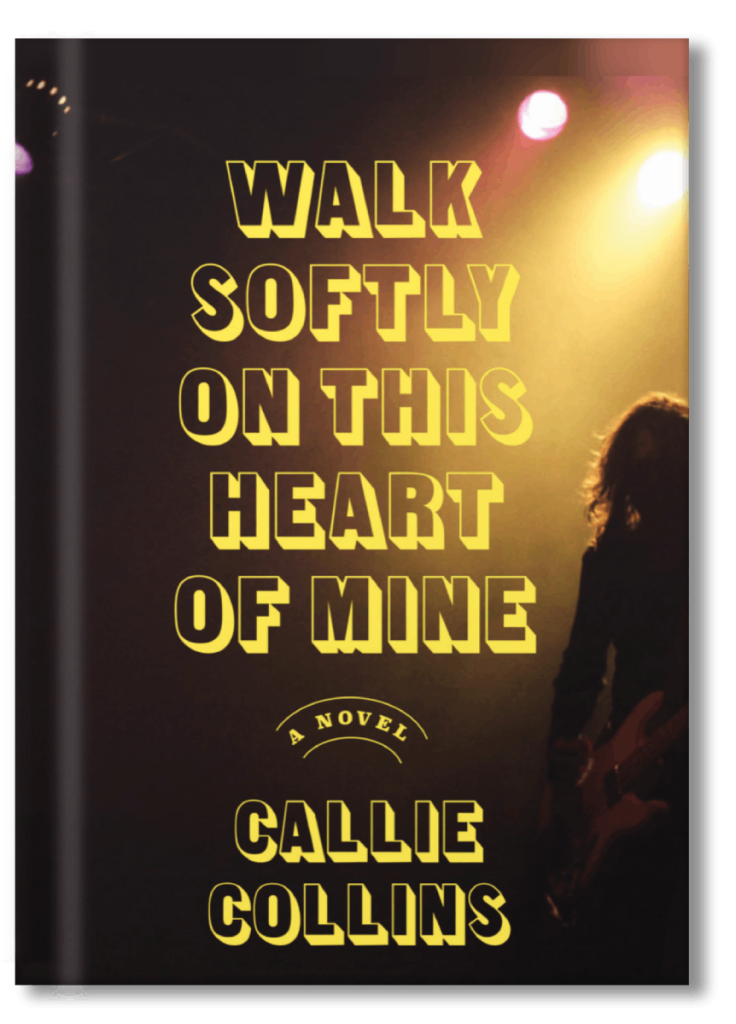
Walk Softly On This Heart Of Mine by Callie Collins
There’s a character in Callie Collins’ Texas-set debut novel who loves to read old-fashioned Western paperbacks by Louis L’Amour and his ilk. That’s a bit of an inside joke, because Walk Softly on This Heart of Mine ($28. Doubleday. calliecollins.com) is anything but a traditional Western. The story, which takes place in 1976, when Austin began to grow from a relative rural backwater to the gentrified hipster paradise it is today, centers on a washed up roadside saloon that roars back to life after its owner, Wendell, discovers Doug Moser, an unsung blues guitarist and invites him to head up a house band. Steven, who becomes Doug’s biggest, most desperate fan, is a rootless queer twentysomething who’s been kicked out of his conservative Christian home and is endlessly tormented by the bar’s macho crowd. Meanwhile, Doug also catches the eye of Deana, Wendell’s unhappy wife. As the Rush Creek Saloon grows in popularity, the music gets louder, the temperatures get hotter, and the interpersonal relationships crackle with tension. The story comes to an end with a bit less resolution than one might desire, but Collins’ immersive world building will hold readers rapt in a sweaty, booze-soaked milieu from start to finish.



